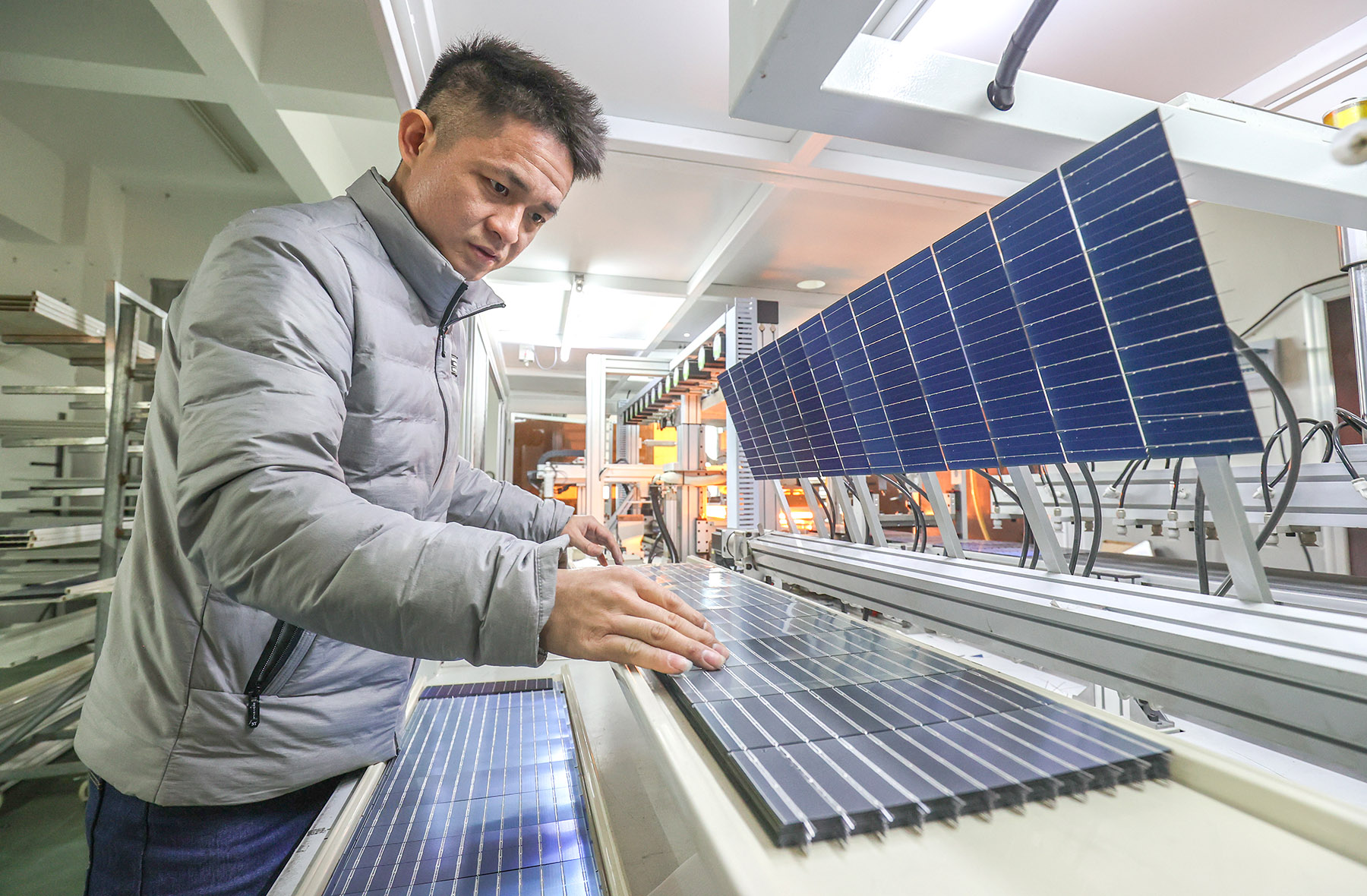Proof of clean energy use in China sees big surge in 2024 issuance

Further efforts are expected to improve mutual recognition of certificates regarding proof of green energy use between China and Europe to support economic and trade exchanges, as more economies are implementing carbon pricing mechanisms for imported goods, said officials and experts.
China's National Energy Administration said that by the end of 2024, China issued a total of 4.955 billion green electricity certificates, marking a 21.42-fold increase compared to the previous year. The certificates' cumulative transactions reached 553 million times, a 4.19-fold increase, equivalent to 553 billion kilowatt-hours of electricity, with over 99 percent of certificates purchased by enterprises.
Yi Yuechun, deputy head of the China Renewable Energy Engineering Institute, said that manufacturing sectors such as telecommunications and automotive account for 70 percent of green electricity certificate purchases.
READ MORE: Great strides in energy landscape
Green electricity certificates serve as electronic IDs for green power transactions. Due to the homogeneity of electricity, once it enters the grid for transmission, its attributes cannot be distinguished by the grid or consumers. Green electricity certificates can thus prove green power use for holders. Each certificate represents 1,000 kWh of green power generated from renewable sources and can be traded separately from green power, mainly via green electricity certificate trading platforms, such as the Beijing Power Exchange Center and the Guangzhou Power Exchange Center.
Experts highlighted that amid the introduction of carbon border taxes by various economies, promoting the mutual recognition of certificates for green power use would support tracing the carbon footprint of products and help stabilize trade.
Wei Qingshan, deputy director of the electricity business qualification management center of the NEA, highlighted the gradual expansion of green electricity certificate issuances. He said that in 2024, China officially issued such certificates for conventional hydropower and geothermal power generation projects, covering all energy types to date. Progress was also made in issuing the certificates for distributed photovoltaic projects, with a total of 23.31 million certificates issued for about 64,200 distributed photovoltaic projects throughout the year.
Lin Boqiang, head of the China Institute for Studies in Energy Policy at Xiamen University, emphasized the pivotal role of green electricity certificates in driving green energy consumption for both enterprises and individual consumers. Lin said green electricity certificates serve as a crucial tool to facilitate the tracking of renewable energy consumption responsibilities for energy-intensive enterprises. Additionally, multinational corporations seeking to meet low-carbon requirements within their supply chains can utilize green electricity certificates to trace indirect emissions related to their products.
ALSO READ: Energy industry to witness boom times
"In the global trade of products, carbon emissions have become an unavoidable issue that will significantly impact the evolution of future global trade rules. Furthermore, China is in the process of establishing a national carbon emissions control system. Green electricity trading, green certificate trading and carbon trading are three market-based policy instruments that promote the low-carbon transformation of the energy economy, playing a crucial role in addressing carbon emissions in international trade and establishing a national carbon emissions control system. In the future, it is essential to strengthen the mutual recognition of green electricity certificates with international standards," he said.
Wei reiterated the commitment of the NEA to accelerate the development of green electricity certificate trading markets, promote the coordination between green electricity certificates and carbon trading markets, and drive the internationalization of China's green electricity certificates. Efforts will also be made to expand the application scenarios of the certificates, align the certificates with carbon policies, and incorporate the certificates into carbon emissions accounting and footprint management.
"Furthermore, efforts will be made to promote the recognition of the certificates by relevant international organizations, nurturing internationally influential green electricity consumption verification bodies. Actively participating in the research on carbon border adjustment mechanisms, and contributing to the development of international standards for green electricity certificate issuance, measurement and trading are also necessary," he said.



